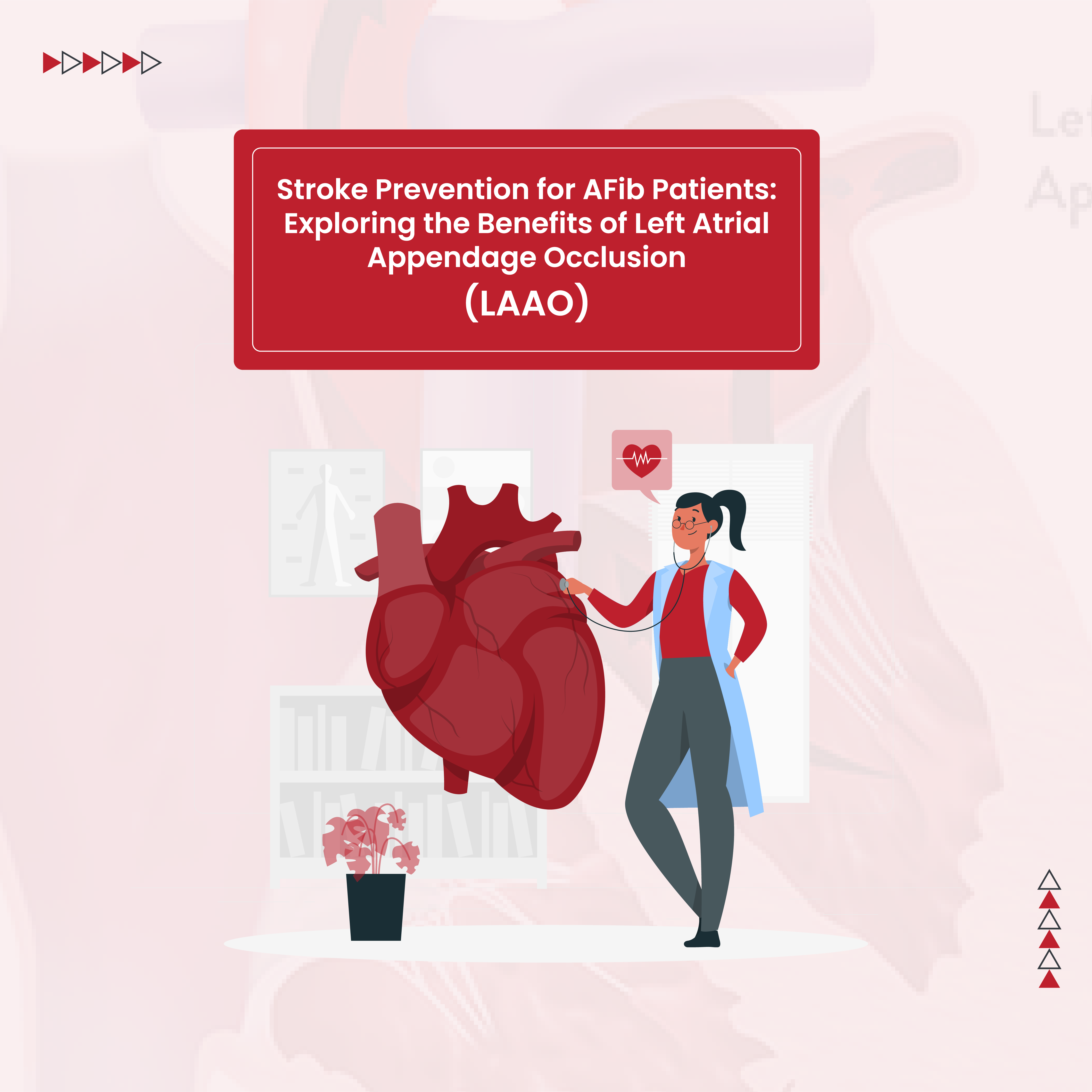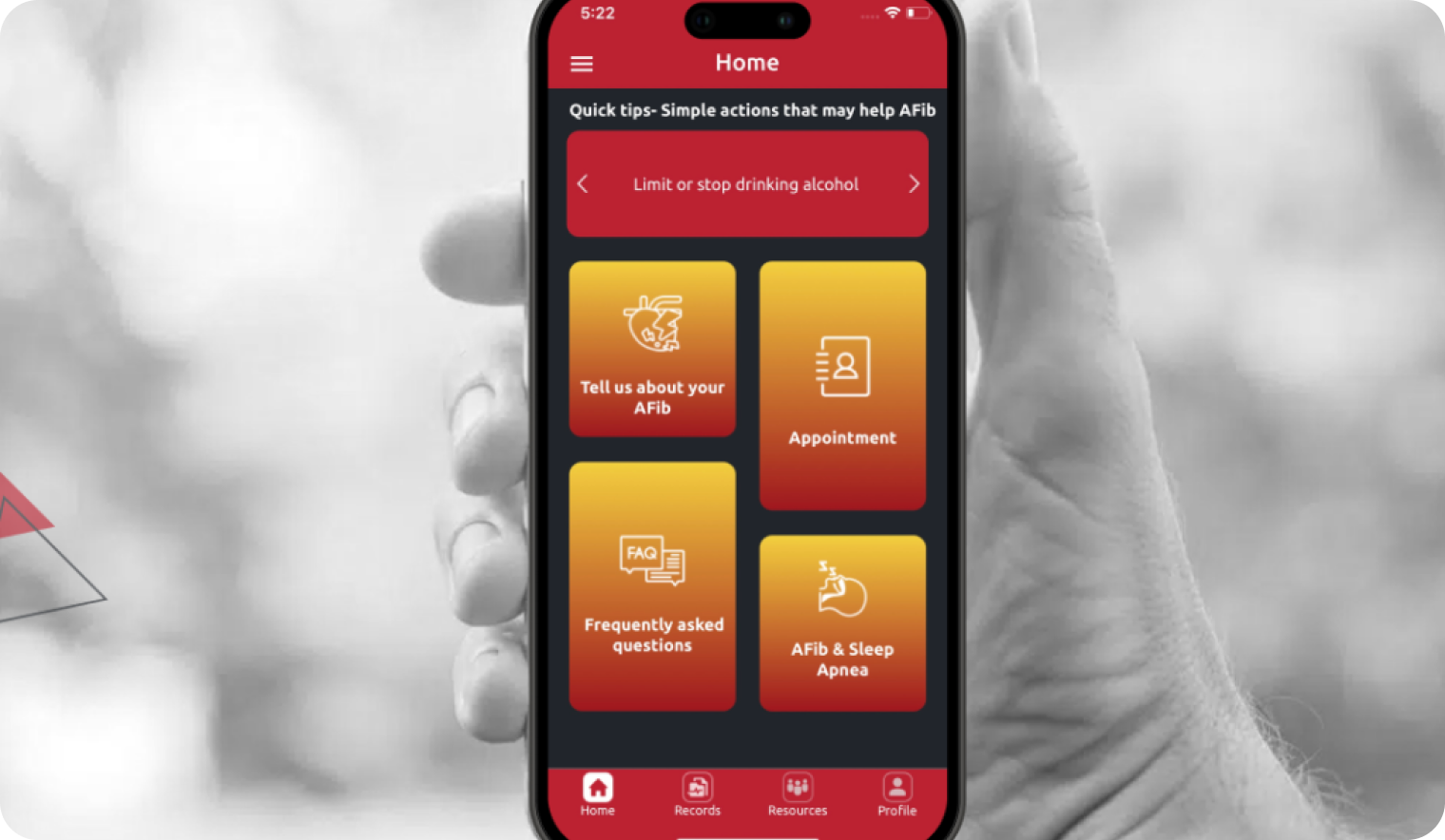Bill is exhausted this morning. He just finished his fourth cup of coffee in an effort to jumpstart his energy. He is sitting at the table when he feels the heart palpitations begin. Bill looks at his smartwatch and sees that his heart rate is 120 and is going up and down erratically. With a sinking feeling, he knows he is back in atrial fibrillation. He mentally chastises himself for having that fourth cup of coffee. He has had AFib for long enough to know that he has certain AFib food triggers. And that caffeine is one of them.
Bill is not alone in having atrial fibrillation (AFib) triggers. A study published in July 2019 in the journal Heart Rhythm found that 74% of patients reported identifiable AFib triggers. The most commonly reported triggers were alcohol (35%), caffeine (28%), exercise (23%), and lack of sleep (21%). While some AFib risk factors like advancing age, gender, and genetics are not reversible, each of these AFib triggers can be addressed with lifestyle choices that provide an accessible means for preventing and reducing AFib episodes. In this article, we will review modifiable AFib attack triggers to help you take charge of your health and minimize the effects of AFib on your life.
Why Does Atrial Fibrillation Suddenly Start?
The abnormal heart rhythm that is called atrial fibrillation is characterized by the sudden onset of an irregular heartbeat. Because it happens so suddenly sometimes people describe it as an atrial fibrillation attack.
When the heart is in normal sinus rhythm the heartbeat is steady and regular. With atrial fibrillation, chaotic electrical discharges in the upper heart chambers (atria) override normal sinus rhythm and cause an irregular, often fast, heart rhythm. The abnormal heart rhythm (arrhythmia) starts and stops abruptly. The same is true for atrial flutter, which is a similar but separate arrhythmia.
Give Us A Call To See How We Can Help!
What Triggers An AFib Attack?
Atrial fibrillation is complex and scientists still do not fully understand all of the mechanisms that cause the arrhythmia. Despite this, they have identified certain AFib triggers that make atrial fibrillation more likely to occur. Especially if you have a history of AFib.
Atrial fibrillation increases the risk of stroke and heart failure. It also can have a significant negative impact on quality of life. Arrhythmia treatment is complicated and AFib treatment guidelines and recommendations are updated frequently. If you have AFib, you should see a cardiologist (heart specialist). The cardiologist will work with you to identify your AFib risk factors and AFib triggers. They’ll also and will formulate a personalized AFib treatment plan for you. Atrial fibrillation treatment may include lifestyle optimization recommendations, atrial fibrillation medications, or catheter-based interventions, like ablation.
There are a number of health conditions that can cause AFib. Some of the more common ones are:
- High blood pressure
- Coronary artery disease
- Heart failure
- Heart valve disease
- Sleep apnea
- Viral infections, serious illness, and pneumonia
- Lung disease
- Pulmonary embolism (blood clot in the lungs)
- Thyroid abnormalities
If you have AFib, you probably want to do what you can to avoid another episode. In addition to arrhythmia treatment, being evaluated and treated for health conditions that can cause AFib, like those listed above, can help prevent AFib recurrence and disease progression. Another vital component of treatment is AFib trigger avoidance. It is important to be aware of potential AFib triggers so you can identify and avoid those that seem to aggravate your AFib.
Addressing These 8 AFib Triggers Can Decrease AFib And Improve Your Quality Of Life
Stress
There is an increased incidence of AFib in the setting of acute physical stress like serious illness or surgery. For example, atrial fibrillation is observed in greater than 40% of patients in the intensive care unit and up to 50% of patients who are recovering from open-heart surgery. The stress of illness or surgery increases inflammation, activates the sympathetic nervous system, and increases the release of stress hormones, all of which can put extra pressure on the heart, irritate the heart’s electrical system and trigger atrial fibrillation.
Our bodies experience stress the same way regardless of whether that stress is physical or emotional. Anger, anxiety, and depression cause the same changes within the body as a physical stressor, like surgery. People with a history of atrial fibrillation have been observed to have a two-fold increased risk of an AFib episode after an acute anger or stress event.
Long-term environmental stressors, like work stress or air pollution, are also associated with an increased risk of atrial fibrillation. Chronic stressors, whether emotional, like work stress, or physical, like air pollution, contribute to higher circulating levels of stress hormones, increased systemic inflammation, and hyperactivity of the autonomic nervous system. In addition to the physiologic changes associated with stress, as stress levels increase or persist, healthy behaviors tend to decrease. All of this contributes to an increased incidence of AFib risk factors like high blood pressure, obesity, diabetes, smoking, and excess alcohol intake.
Can atrial fibrillation be caused by anxiety?
Anxiety and depression can trigger AFib and increase the frequency of AFib episodes. People with depression or anxiety also report more severe AFib symptoms. And that AFib has a greater negative impact on their quality of life compared to people with AFib who do not have anxiety or depression. It has been hypothesized that depression and anxiety worsen AFib by increasing inflammation and sympathetic nervous system activation.
Overall, acute and chronic stress cause direct physiologic alterations and indirect behavioral and psychological changes which contribute to AFib initiation and maintenance. While we are still learning about the exact mechanisms of the relationship between stress and AFib, the Women’s Health Study has demonstrated the protective effect of better mental health on AFib. This study followed over 30,000 female nurses over the course of 20 years and found that women who reported a positive outlook and happiness had a lower incidence of Afib.
Alcohol
Alcohol is a known risk factor for atrial fibrillation. This is especially true for excessive alcohol intake. Drinking more than 1 drink/day for women and 2 drinks/day for men – and binge drinking – having more than 4 alcoholic beverages on one occasion for women and 5 drinks on one occasion for men.
However, it may not just be excessive drinking that causes problems for people with AFib. A recent study published in the New England Journal of Medicine found that people who abstained from alcohol had fewer AFib episodes, less severe AFib symptoms, and fewer AFib-related hospitalizations compared to study participants who had moderate alcohol intake.
Stimulants
Stimulants can have a direct toxic effect on the heart, irritate the heart’s electrical system, and trigger AFib. One proposed mechanism by which stimulants could indirectly act as an AFib trigger is through transient blood pressure elevation.
- Street drugs. Cocaine and methamphetamines are stimulants that can be AFib triggers
- What medications can cause atrial fibrillation?
- Over-the-counter cold medications containing phenylephrine and pseudoephedrine have been linked to AFib episodes.
Prescription medications like oral steroids, certain asthma medications, and osteoporosis medications have been linked to possible increases in AFib episodes.
Food Triggers
- Can AFib be triggered by food? AFib food triggers are very individualized. People with AFib have reported excess salt intake, caffeine, and very cold/frozen food, like ice cream, as personal AFib triggers.
- What foods should be avoided with atrial fibrillation? Because AFib food triggers are dependent on the individual, it is important to try to notice if your AFib episodes tend to occur more frequently after certain foods. If you identify an AFib food trigger, it is best to try to avoid this food to prevent future AFib recurrences.
High-intensity Exercise
People who engage in high-intensity, endurance exercise (i.e. long-distance cross country ski racers) have a higher risk of developing atrial fibrillation. However, moderate-intensity physical activity decreases AFib risk by decreasing the incidence of AFib risk factors like high blood pressure, diabetes, sleep apnea, heart disease, and obesity.
Lack Of Sleep
There is nothing like a good night’s sleep. It is during sleep that the body does its main repair and recovery work. Inadequate sleep duration and poor sleep quality can both impact the occurrence of atrial fibrillation. There is a poorly understood correlation between getting less than 6 hours of sleep per night and an increased incidence of AFib. The impact of poor sleep quality is better understood as it is strongly associated with sleep apnea, which is a known risk factor for AFib.
If you have symptoms of sleep apnea such as snoring, frequent nighttime awakenings, waking up feeling tired or being excessively tired during the day you may have sleep apnea and should talk to your healthcare provider about getting tested. Untreated sleep apnea is an AFib trigger. It causes changes in the heart that makes AFib more likely to progress from intermittent to persistent or chronic atrial fibrillation. Adequate treatment of sleep apnea is also important to maximize the effectiveness of AFib treatments.
Dehydration
Can dehydration trigger afib?
Dehydration causes electrolyte imbalances, which can trigger atrial fibrillation. Drinking water and staying hydrated are important if you have atrial fibrillation. As long as you do not have heart failure or other health conditions that require fluid restriction, drinking about 8 cups of water per day is a good goal for staying hydrated. It is important to remember that caffeine is a natural diuretic and will increase urine output and tends to be dehydrating. Therefore, not only do caffeinated beverages like coffee, tea, and soda not count toward your total daily fluid intake, they actually make it so you need to drink more water to make up for what you lose due to the diuretic effect.
Tobacco Use
Smoking or chewing tobacco has direct and indirect effects which increase the risk of atrial fibrillation. Tobacco use indirectly increases AFib episodes by increasing the risk of high blood pressure, heart disease, diabetes, and lung disease (i.e. COPD). It also directly impacts AFib by increasing systemic inflammation and oxidative stress which causes structural and functional changes in the heart that make AFib more likely to occur. People who smoke are two times more likely to develop AFib than those who do not smoke.
What Are The Tips For Avoiding AFib Triggers?
Over the long term, the best way to prevent or reverse AFib is through risk factor modification and a healthy lifestyle including:
- Eating a well-rounded, healthy diet
- Maintaining a normal body weight
- Getting adequate sleep
- Stress management
- Minimizing alcohol intake
- Frequent moderate-intensity physical activity
- Not smoking or chewing tobacco
Pay attention to your body. If you can identify triggers for AFib attacks, avoiding them is a simple way to minimize your AFib. Optimizing your lifestyle can help reverse AFib. Even if your AFib persists despite lifestyle modification, a healthy lifestyle and risk factor modification can help make AFib treatments more effective.








